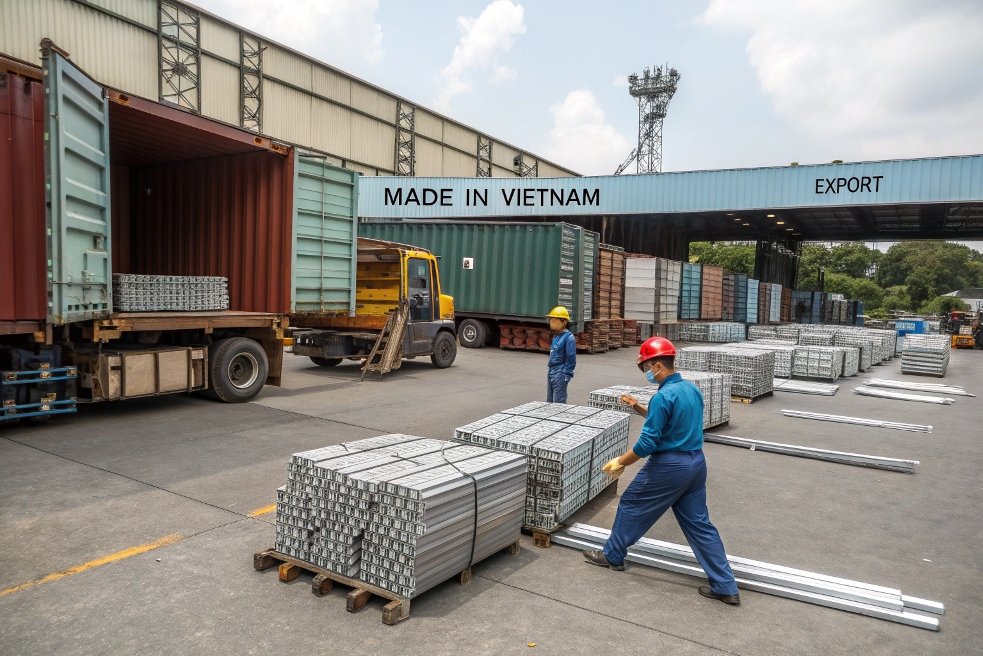
If you’ve ever wasted weeks on back-and-forth emails only to find out the supplier has zero export experience, you’re not alone—I’ve been there too.
To determine if a Vietnamese custom steel parts supplier is ready for international business, check their export history, verify global trade knowledge, and assess logistics and communication skills.
This guide breaks down exactly how to do it. It helps you avoid wasting time and money on unqualified suppliers and gives you tools to confidently choose a partner who can deliver.
How to check a supplier’s export history?
I’ve learned the hard way that not all suppliers are created equal. Some can barely get goods past their factory gates, let alone international borders.
To check a supplier’s export history, review their website, request case studies or references, and examine shipping records for consistency and volume.
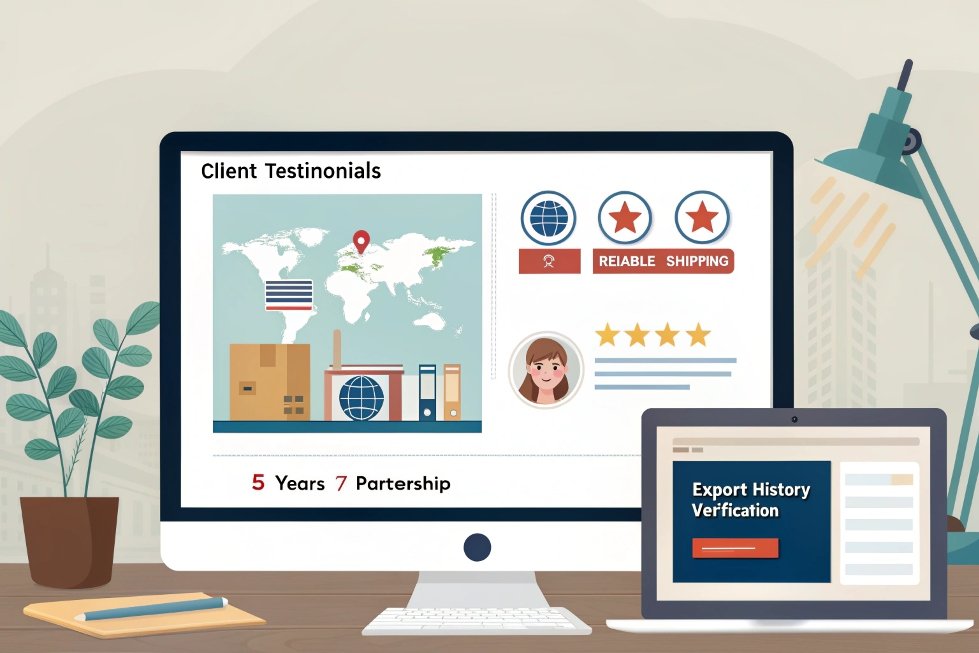
Start by visiting the supplier’s website. Look for any signs of global reach—mention of overseas customers, export-ready services, or shipping capabilities. Professional websites often feature these details to build trust.
Also, ask the supplier directly for references from past international buyers. A supplier that has worked with clients in the US, Europe, or Australia will usually be proud to share those stories. If they hesitate or provide vague answers, that’s a red flag.
You can also request basic export documentation from previous shipments—like commercial invoices, packing lists, or even Bills of Lading. These show the countries they’ve shipped to and how often.
Here’s a quick checklist:
| Verification Step | What to Look For |
|---|---|
| Website Review | Mentions of export markets, languages supported, logistics |
| Export Case Studies | Specific client names, industries, and outcomes |
| Sample Export Docs | Bills of Lading, Commercial Invoices, Export Licenses |
| Trade Platform Listings | Verified badges, transaction histories on Alibaba 1 or Globalsources |
A seasoned exporter will be able to provide at least some of these. A beginner or domestic-only supplier will struggle.
Is the supplier familiar with international trade regulations?
Nothing slows down a shipment like missing paperwork or compliance issues. I once lost two weeks because a supplier didn’t know what a Certificate of Origin was.
A supplier familiar with international trade regulations understands INCOTERMS, manages customs documentation, and follows compliance rules like RoHS, REACH, or ISO.
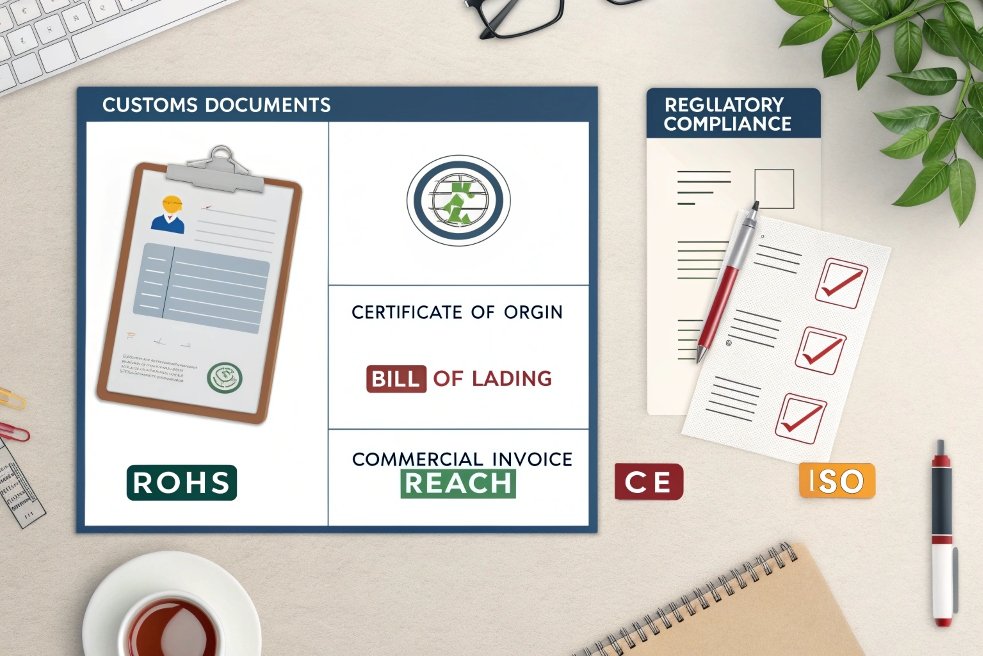
Ask specific questions. For example: “Can you provide an HS code for these parts?” or “What INCOTERMS do you normally work with?” If they can’t answer confidently, be cautious.
Also, request to see any international certifications. Here are some of the most common:
| Certification | What It Indicates |
|---|---|
| ISO 9001 | Quality management, recognized globally |
| ISO 14001 | Environmental management compliance |
| ASTM/ASME | North American material and mechanical testing standards |
| JIS | Japanese Industrial Standards for precision parts |
If they already meet these standards, it’s a strong signal they’re export-ready. For instance, many Vietnamese manufacturers have obtained certifications like ISO 9001 and ISO 14001 2. If not, they may not be prepared for your market’s requirements.
You can also test their knowledge of compliance scenarios. For example, ask them about documentation needed for exports to the US vs. Europe. They don’t need to be lawyers—but they should know the basics.
What international clients has the supplier worked with?
I always ask this first. If they’ve served clients in the U.S. or EU, chances are they know the drill when it comes to quality, timelines, and documentation.
To evaluate past international clients, request a list of countries or companies the supplier has worked with and look for evidence like client testimonials or project showcases.
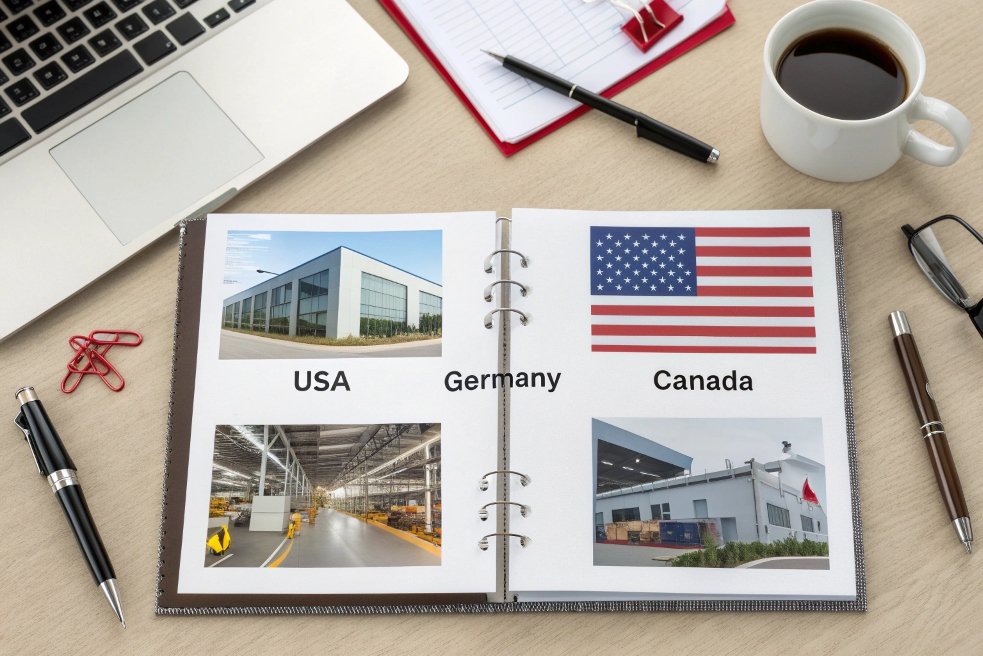
Some suppliers even feature logos of past clients on their websites. If you see a recognizable brand or company name, that’s worth noting. However, make sure to verify. Some factories might falsely claim partnerships to boost credibility.
Here are ways to validate:
| Method | What to Look For |
|---|---|
| Testimonials on website | Check if they are specific, with names or projects |
| Case studies or galleries | Look for production and shipment images with date stamps |
| LinkedIn activity | Are their team members connected to international clients? |
| Trade show participation | Presence at events like Hannover Messe 3, M-Tech, or FABTECH |
Also ask: “Can I speak with one of your past overseas clients?” Even if they can’t share direct contacts due to confidentiality, they should be able to offer anonymized case studies with clear outcomes.
How to assess a supplier’s international logistics capabilities?
Logistics is where even experienced suppliers can trip up. One wrong HS code or missing certificate can delay shipments or rack up surprise customs fees.
To assess a supplier’s logistics capabilities, check their familiarity with export documentation, preferred shipping methods, and ability to work with freight forwarders or offer DDP services.
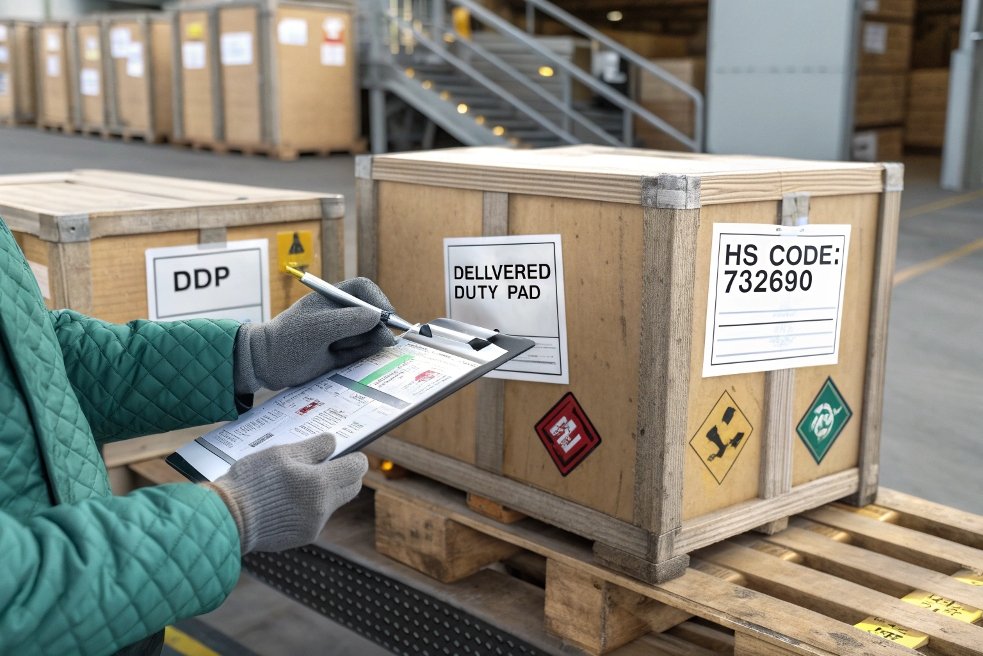
Ask them:
- Do you offer FOB or DDP shipping?
- Can you prepare commercial invoices, packing lists, and Certificates of Origin?
- Have you worked with U.S. or European customs brokers?
Suppliers with logistics experience will confidently explain how they handle each step. They may even recommend freight forwarders they trust.
Evaluate if they support Incoterms like EXW, FOB, or DDP. If they only mention EXW, that means you’ll have to manage shipping from their factory door—fine if you have the team for it, but risky otherwise.
Also, test their response time. Logistics involves coordination between multiple parties. A supplier who delays responses today may also delay shipment pickups tomorrow.
Here’s a comparison table:
| Capability | Inexperienced Supplier | Experienced Exporter |
|---|---|---|
| Export Paperwork | Basic or none | All documents ready |
| Shipping Methods | Local carriers only | Works with FedEx, DHL, sea freight |
| Customs & Duties Knowledge | Vague answers | Knows about taxes, DDP, HS codes |
| Logistics Contacts | None or unreliable | Has forwarder or broker partners |
The best way to know for sure? Place a small trial order. Monitor how they handle every stage—order confirmation, production updates, packing, labeling, and final delivery. It’s the real-world test of everything they claim.
Conclusion
Choosing the right supplier means verifying experience, not just promises. Do your homework, ask the right questions, and test before you commit.
Explore global supplier profiles and trade activity on Alibaba to verify export experience. [#] ↩
Learn how certifications like ISO 9001 and 14001 signal supplier quality and export readiness. [#] ↩
Hannover Messe is one of the top trade fairs where experienced exporters exhibit their capabilities. [#] ↩

